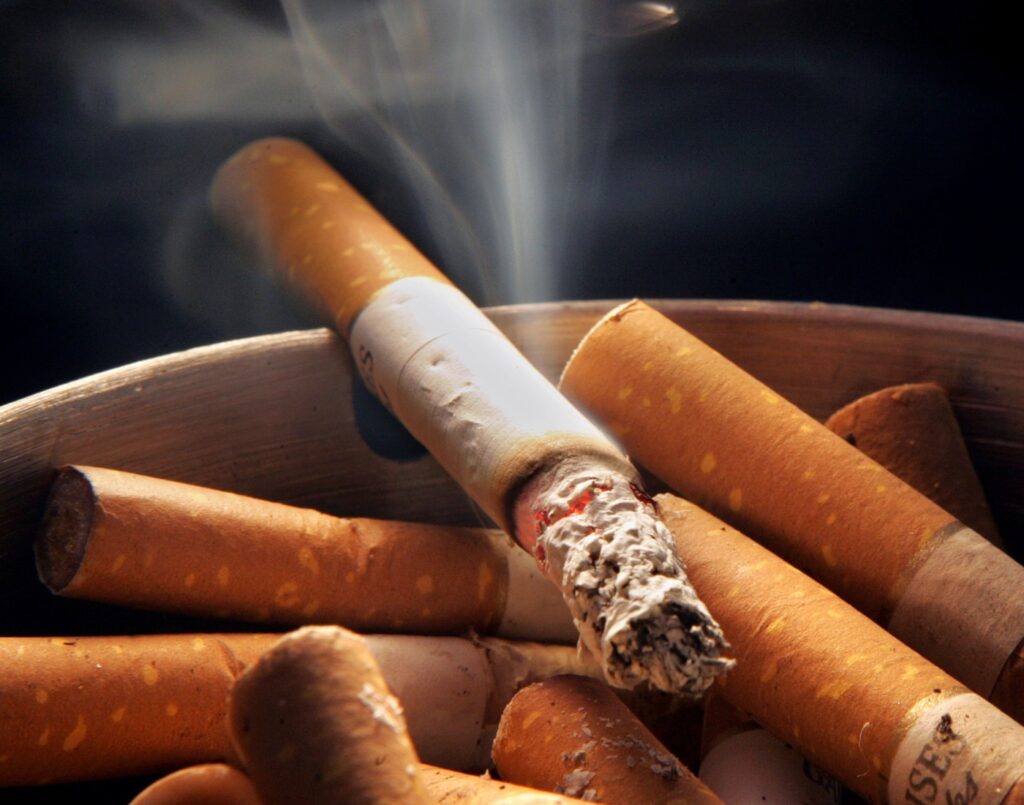
California’s proposed ban on the sale of filtered cigarettes, which was heard by the State Assembly Health Committee on March 29, would be a terrible mistake. I support reasonable efforts to remove litter from California’s streets, parks, and beaches, but Assembly Bill 1690 simply goes too far. This bill will not stop cigarette litter, but it will cost California significant tax revenue and generate unintended health consequences for smokers.
Filtered cigarettes make up the vast majority of all cigarette sales in California, and around three million adults in California smoke. Nicotine is addictive and many smokers are not interested in quitting. If the legal sale of filtered cigarettes is banned in California, many of these smokers will not just quit. They will either buy filtered cigarettes somewhere else or start smoking nonfiltered products. Either way, the results would be bad for California.
Make no mistake, the bill will not stop Californians from littering or smoking filtered cigarettes. Instead, the sale of filtered cigarettes will simply be diverted to purchases from alternative sources. Some smokers will travel and purchase filtered cigarettes from neighboring states, where these products remain legal and readily available. Others will purchase filtered cigarettes on the internet from out-of-state sellers. If California taxes are not collected by these sellers at the time of sale, California faces the arduous task of collecting these taxes from consumers post-sale. And don’t forget the black market, which would happily service some of the three million new potential customers this bill would create.
What would it mean if California’s smokers started buying filtered cigarettes somewhere else? Based on 2019 sales data, it would mean the potential loss of around $2 billion in state excise and sales tax revenues. Surely California could find good uses for that money – including efforts to combat and clean up litter of all types.
The worst effects of this bill may be seen in the health of smokers who switch to unfiltered cigarettes and roll-your-own cigarettes. A pivot away from filtered cigarettes to less safe, unfiltered products will only increase the smokers’ exposure to carcinogens. Filters capture many of the large, toxic particulate found in cigarette smoke. With unfiltered products, smokers will inhale all of the large particulate as well as the small particulate. Once inhaled, the large particulate will deposit on the first surfaces they touch, namely the back of the mouth and upper part of the throat. Particulate that deposits on the tongue, gums, and throat will lead to a higher incidence of smoking-related cancers in the head, neck, and mid-chest.
A filter ban will also lead to more cancers in smokers who are less frequent users of cigarettes. Without the benefit of filters, these less frequent users of cigarettes will experience a higher incidence of head and neck cancers and more lung cancers because these smokers will now be exposed to all of the toxic particulate that the filter once captured.
Making matters worse is the fact that head and neck cancers are much harder to screen for and treat. To meet a rise in these types of cancers, screening tools, such as low radiation CT scanning, that has been developed for the detection of lung cancer, will need to change to adjust to the unique, anatomical locations of head and neck cancers.
Related Articles
Biden’s incoherent and inconsistent approach to the war in Ukraine
Hollywood face-slaps conservatives: Larry Elder
Never forget the late, great Walter E. Williams
Pete Hardin, Mike Jacobs and Todd Spitzer on Proposition 57
Inflation: the result of sticker shock on government spending
Treating head and neck cancers is also challenging as these cancers have a high propensity to metastasize and can require disfiguring surgery and a tracheotomy. If you’ve ever seen a tracheotomy patient breathing or speaking through a hole in their windpipe, you know how painful and debilitating these types of treatments can be. Unfortunately, the full scope of these unintended, health ramifications from a filter ban will not be fully appreciated until significant population data is collected 3-5 years after a ban is implemented.
Litter is a real problem, but AB 1690 is not the solution. California should provide ways for smokers to dispose of their waste responsibly. The state should use some of the billions in tax dollars it collects from filtered cigarettes to clean up urban and natural areas. But it should not let a well-intentioned but misguided focus on litter drive smokers to other states, the black market, and bad health outcomes.
Ryan M. Klein is a pulmonologist in Newport Beach.
